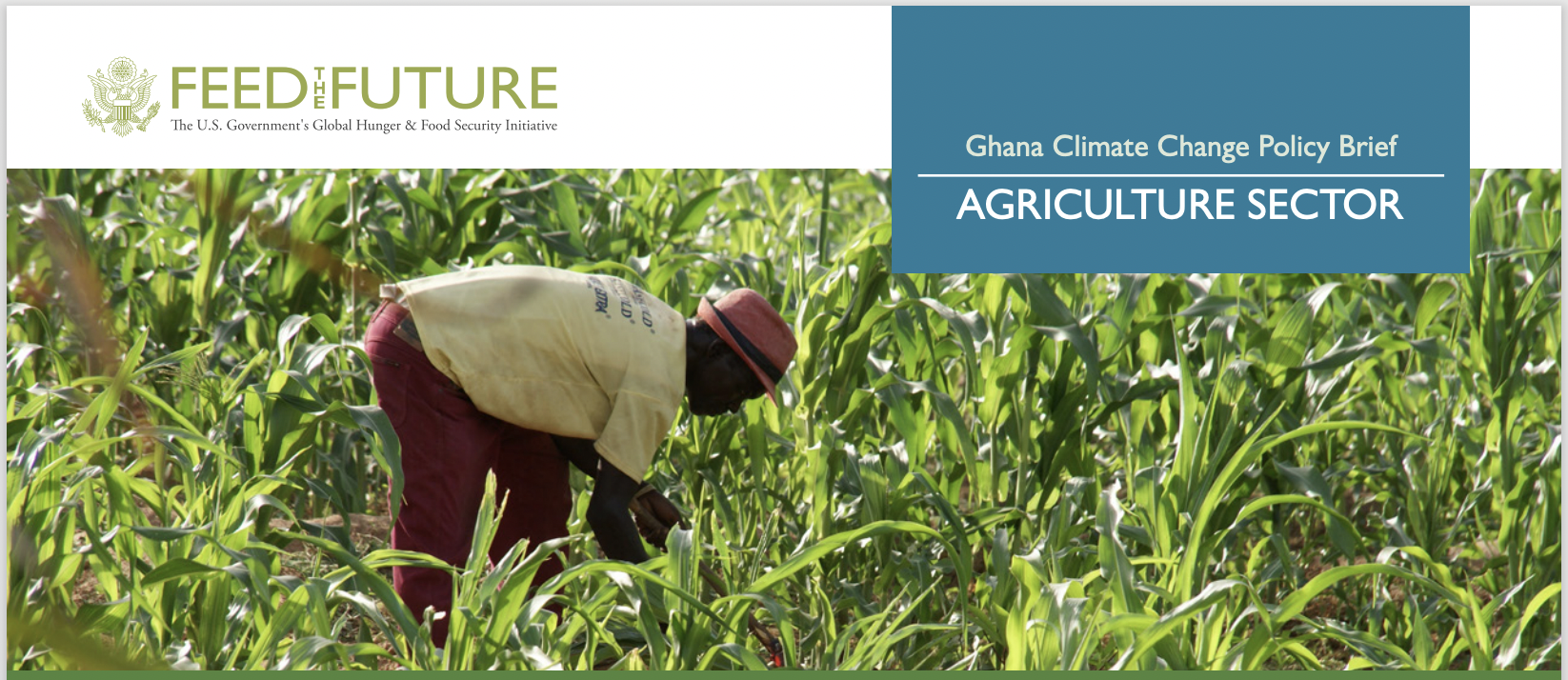New Policy Brief Details Effects of Climate Change on Ghana’s Agriculture Sector
The USAID Feed the Future (FTF) Ghana Policy LINK Activity has published the first in a series of policy briefs emerging from a broader climate change assessment. The brief on the agriculture sector focuses on one of six key areas covered by that assessment, which included the water, energy, forest, coastal systems, and climate finance sectors.
The assessment methodology included a literature review as well as inclusive stakeholder consultations through interviews, focus group discussions, and sector workshops in Tamale and Accra. As part of the assessment, the Ghana Policy LINK Activity consulted 43 institutions and groups, including USAID and its implementing partners, other development partners, the Government of Ghana, academia, civil society organizations, farmer groups, the private sector, and the media. Participants at the Tamale and Accra workshops, held on August 18/19 and 30, respectively, included contributing authors of Ghana’s Nationally Determined Contributions (NDC), the national communication to the UN Framework Convention on Climate Change (UNFCCC).
The newly published agriculture sector brief details the impacts of climate change on the sector, the constraints to addressing these impacts, and recommended interventions to reduce these impacts and deliver a climate-resilient agricultural sector in the future. Combined, the full set of six policy briefs, including the five forthcoming ones due to be published in October, will be used to further engage stakeholders to prioritize transformative actions to achieve a climate resilient future. The briefs will be hosted on a resource portal at policylinkglobal.org/ghana.
Resources
Download the Ghana Climate Change Policy Brief on the Agriculture Sector.

